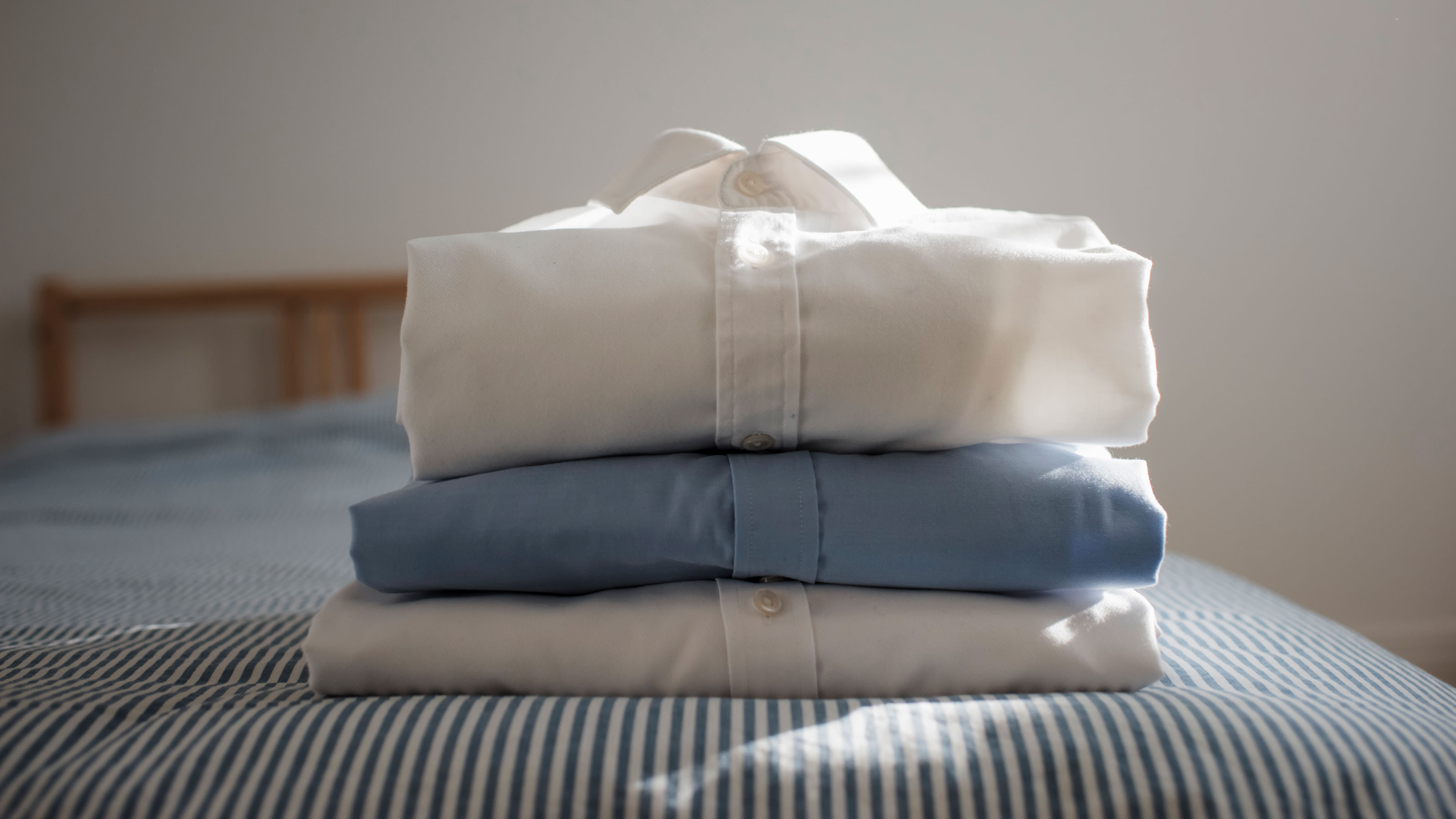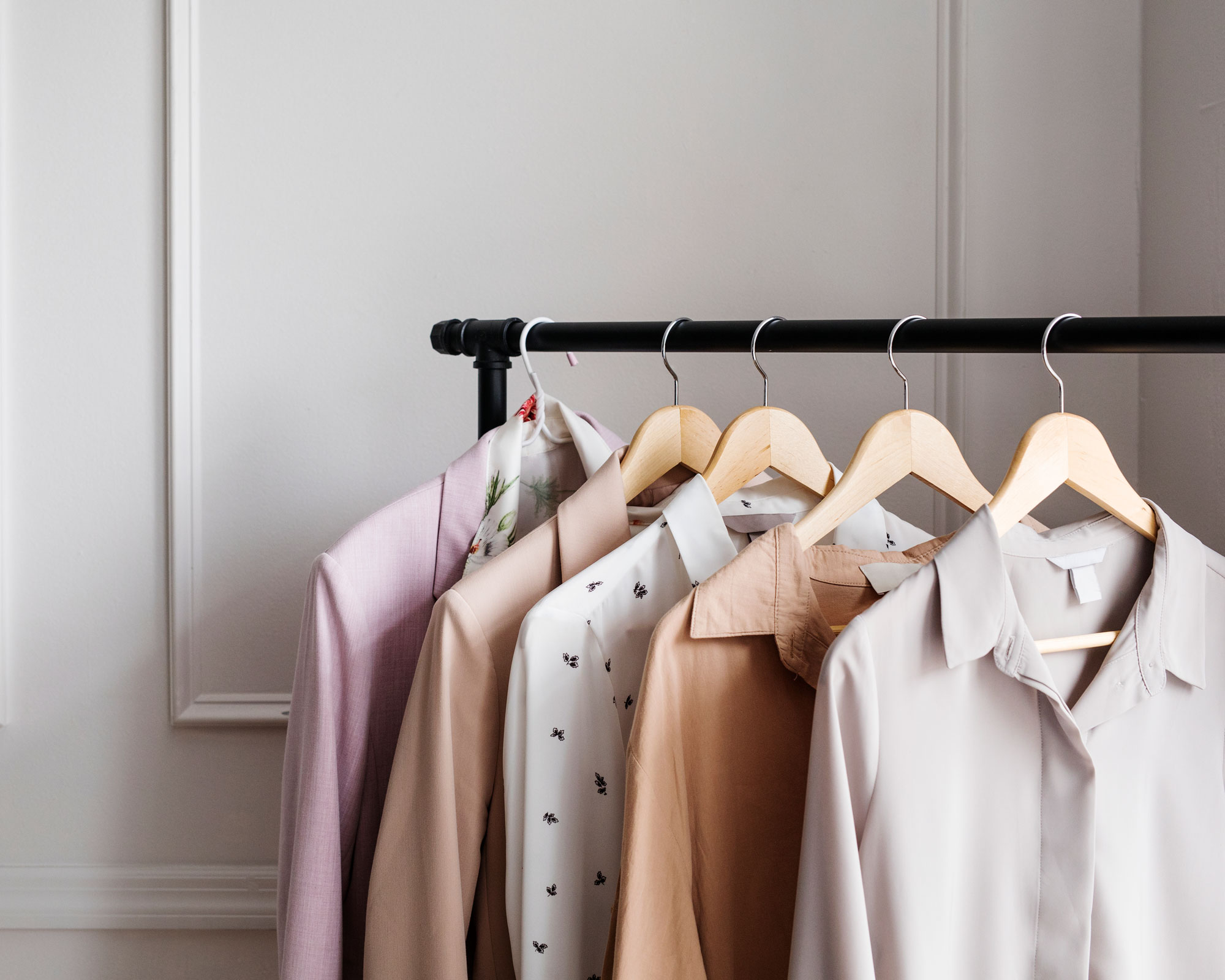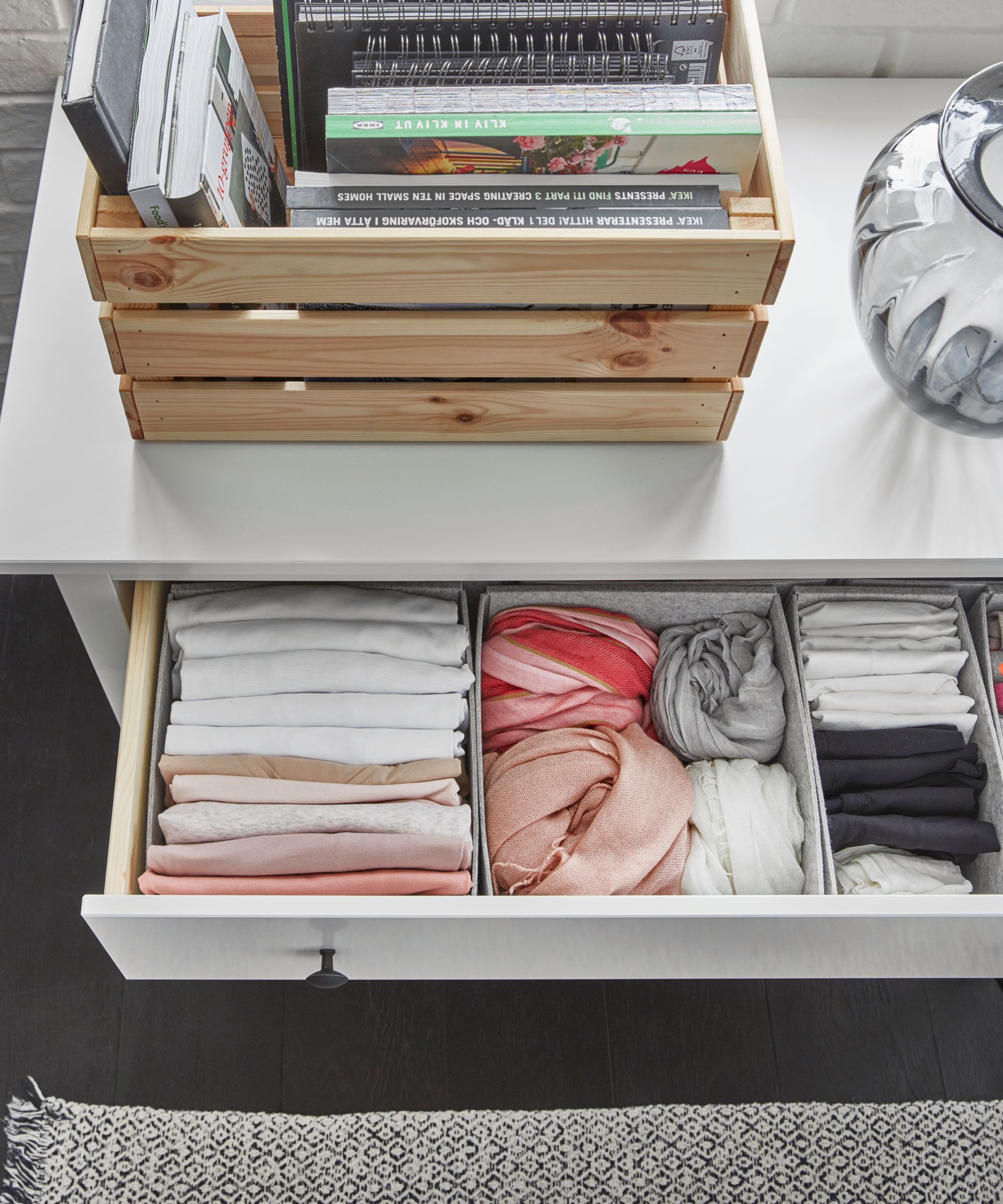How to fold shirts – for stacking in the closet and packing in suitcases
Learning how to fold shirts properly so they stay neat and tidy is the best way to keep creases at bay

Knowing how to fold shirts the right way – from everyday t-shirts and tank tops to your more formal work shirts and occasional ‘going out’ blouses – not only makes for a beautifully well-organized closet, but a much smoother morning routine, too –nothing causes unnecessary stress quite like last-minute ironing.
Properly folded, shirts will remain neat, tidy and (pretty much) crease-free. Sounds good, right? It’s easy to do, too, once you know how. The trick is to pick a technique and stick to it. When organizing clothes of any kind, using consistent folding methods is the best way to maximize space, particularly when combined with effective clothes storage ideas.
How to fold shirts
No amount of expert shirt folding will eliminate pre-existing wrinkles, so before we start, a couple of quick tips on doing laundry for you.
Firstly, sort clothes for laundry properly. Lightweight cotton t-shirts dry much quicker than a heavier-weight denim shirt, for example, so will require less time in the dryer. Leaving items in for longer than they need to be makes them likely to overheat and creases to become more deeply set.
Secondly, never leave shirts in the dryer, or crumpled up in a laundry basket, for that matter. As soon as the cycle has finished, take your clothes out and lay them flat. Smooth out any wrinkles using your hands, and wait until completely dry before folding.

How to fold a shirt – for stacking
For wrinkle-free results, we’d always recommend hanging buttoned shirts, but if you’re organizing a small bedroom and only have drawers and shelves to work with, this expert-approved shirt folding method, outlined here by laundry enthusiast Carly Campbell of Mommy On Purpose is the next best thing.
- Lay the shirt out on a clean, flat surface and smooth out any wrinkles with your hands. If it has buttons, make sure they’re done up.
- Fold the sleeves in towards the center of the shirt so that they’re just touching, then fold the shirt in half lengthwise so that the bottom edge meets the top of the collar.
- Fold the shirt in half again, bringing the bottom of the shirt up to meet the sleeves. This should leave you with a neat, rectangular shape that’s easy to stack.
How to roll a shirt – for travel
Another option is to roll your shirts. While this method works well when organizing a bedroom, experts primarily recommend it for traveling. ‘I always roll casual shirts when packing (or using packing cubes, at Amazon) to maximize the space in a suitcase and make unpacking a breeze’, says professional organizer Shannon Krause of Tidy Nest.

Shannon Krause is a Certified Professional Organizer who holds a specialist certificate in Brain Based Conditions from the National Association of Productivity and Organizing Professionals (NAPO), and is a Certified Reiki Master which she incorporates into her work with clients. Tidy Nest has helped dozens of clients bring order into their lives and has won local awards recognizing their work.
- Repeat step 1, as above.
- Fold the sleeves in towards the center of the shirt so they’re just touching.
- Starting with the collar end, roll tightly and evenly up towards the bottom edge, stopping just before you get there. Take the roll and gently tuck it underneath the bottom edge, securing it so it doesn’t unravel.

FAQs
How do you fold a shirt to save space?
Whichever way you choose to do it, folding is regarded as the most efficient solution when it comes to closet organization ideas, however, according to the experts, implementing the file fold method is the best way to really make the most of your space.
To achieve it, fold the shirt as per the steps listed above, then rather than stack, place them vertically inside a drawer or fabric basket (if storing on shelves), like you would store papers in a filing cabinet. Not only will this maximize space, it ensures you can see and access what you need quickly and easily, without rummaging around too much.
How do you fold a shirt really nicely?
As well as looking lovely, taking the time to fold a shirt really nicely also makes for better organization overall – the neater and more compact the fold, the less space you’ll take up in your drawers and shelves, regardless of whether you’re stacking or filing.
While it’s possible to do a good job by hand, professional organizer Mary Jo Contello, owner of Organized by MJ recommends a handy laundry room organization idea for making the job quicker, and ensuring consistent results each time.
‘A folding board, at Amazon is a great investment, even kids can operate it!' Using this will ensure all your shirts are the same size and perfectly neat, which in turn makes them easier to store.
Is it better to roll or fold shirts?
You may well have heard that rolling clothes can eliminate wrinkles, arguably making it the ‘better’ way, but according to professional organizer Darla DeMorrow of HeartWork Organizing, that’s just not true. Regardless of whether you’re rolling or folding a shirt, the trick to minimizing creases is to pre-fold correctly.
‘It may be quick and easy to fold a shirt lengthwise down the (vertical) middle then roll or fold from there, however, this will likely leave a prominent crease right down the middle of the shirt. Instead, I prefer to lay a shirt flat, folding each of the sides into the middle and tucking the sleeves in, then either fold or roll depending on where I’m planning to store. You may well still end up with creases, but now they’ll be on the sides, which is less obvious and often hidden by arms, or a cardigan’, she explains.
With that in mind, whether it’s better to roll or fold shirts ultimately comes down to how you’re planning to store them. If you’re storing on shelves, folding makes for neater stacks, while rolling is better suited to drawers.
What’s the best way to store shirts?
‘If storing on a shelf, I’d recommend folding in a flat rectangle and storing in short piles so you can easily access the shirt on the bottom without the stack falling over’, says Shannon Krause. If storing in a drawer, I suggest file folding or rolling with any graphic or embellishment clearly visible. When organizing a dresser, I like to use spring-loaded dividers, at Amazon to create structure, so the shirts stay neatly upright. Either way, I’d always recommend color coding, too’.
Sign up to the Homes & Gardens newsletter
Design expertise in your inbox – from inspiring decorating ideas and beautiful celebrity homes to practical gardening advice and shopping round-ups.
For 10 years, Tara King worked as a Content Editor in the magazine industry, before leaving to become freelance, covering interior design, wellbeing, craft and homemaking. As well as writing for Ideal Home, Style at Home, Country Homes & Interiors, Tara’s keen eye for styling combined with a passion for creating a happy – and functional – family home has led to a series of organization and cleaning features for H&G.
-
 The moody kitchen in this Victorian home has the most unique wall design I've ever seen – it's the perfect way to bring an elegant, aged feel to the space
The moody kitchen in this Victorian home has the most unique wall design I've ever seen – it's the perfect way to bring an elegant, aged feel to the spaceThe hand-painted feature has brought a sense of history and patina back into the remodeled kitchen
By Molly Malsom Published
-
 I gave the ‘try-for-five’ method a go in my small home – it's a brilliantly easy way to beat chore procrastination in seconds
I gave the ‘try-for-five’ method a go in my small home – it's a brilliantly easy way to beat chore procrastination in secondsThis method is great for those with executive dysfunction
By Chiana Dickson Published